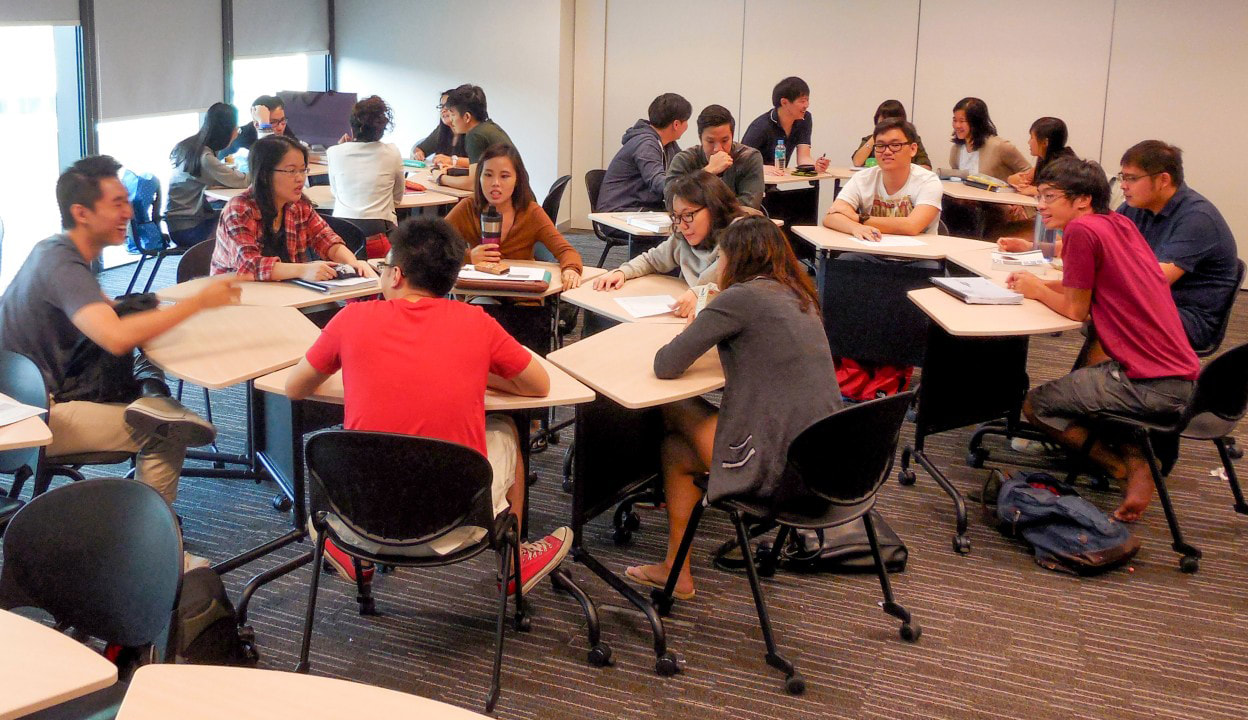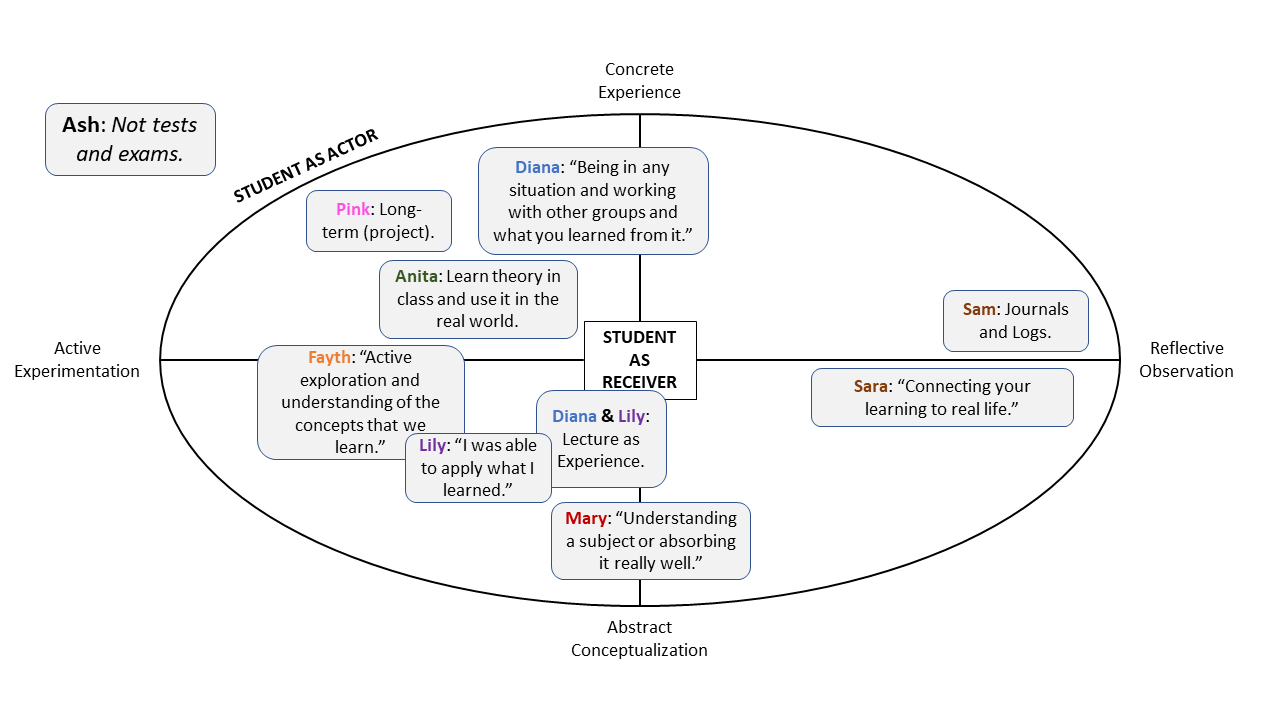- Virtually no student that I interviewed had been told by their instructor why they were being taught using the instructor's methods. I had interviewed a total of nine students from three departments; Communication, Psychology, and Sociology.
- Only one instructor demonstrated awareness of their teaching methods as pedagogies. I had interviewed a total of eight instructors from three departments; Communication, Psychology, and Sociology, as well as a General Education History instructor.
Experiential education is a philosophy and methodology in which educators purposely engage learners in direct experience and focused reflection in order to increase knowledge, develop skills and clarify values (What is Experiential Education, 2022).
I personally have found that talking to the students about our learning methods at the start of the semester helps them engage with their projects. Some experiential learning methods, especially semester-long project-based learning, expose the students to ambiguity and uncertainty. Many students are unfamiliar with these feelings, but they adapt more quickly when we include discussion of the benefits of project-based, team-based, learning. The students express their appreciation of being involved in how they are being taught in the end-of-semester course evaluations.
During the student interviews, I asked each student to define experiential learning. Here is a graphic showing their key concepts on a model developed by Bergsteiner et al. (2010) that is based on the Kolb (2015) Experiential Learning Theory (ELT) model.
References
Bergsteiner, H., Avery, G. C., & Neumann, R. (2010). Kolb's experiential learning model: critique from a modelling perspective. Studies in Continuing Education, 32(1), 29-46. https://doi.org/10.1080/01580370903534355
Kolb, D. A. (2015). Experiential learning: experience as the source of learning and development (Second ed.). Pearson Education, Inc. (1984)
What is Experiential Education. (2022). Association for Experiential Education. Retrieved 1/5/2022 from https://www.aee.org/what-is-experiential-education.


 RSS Feed
RSS Feed